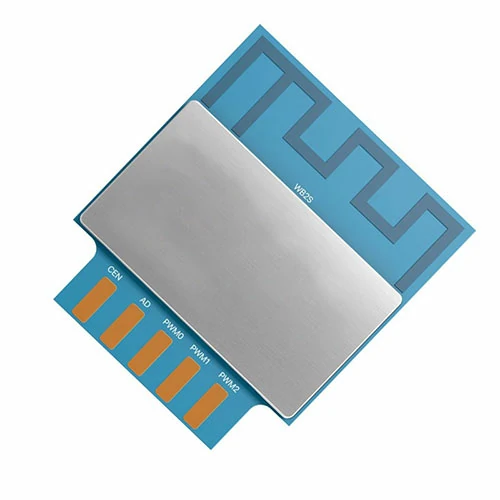The Industrial Internet of Things (IIoT) is transforming the manufacturing and industrial sectors by enhancing automation and efficiency. Central to this transformation are IoT modules, which serve as the building blocks of smart industrial systems. These modules enable seamless connectivity, data collection, and analysis, paving the way for intelligent operations and improved productivity.
Understanding IoT Modules
IoT modules are compact, integrated units that facilitate communication between devices and systems within an industrial environment. They are equipped with sensors, processors, and communication interfaces that allow them to collect data, process it, and transmit it to central control systems or cloud-based platforms. This real-time data exchange is crucial for monitoring and optimizing industrial processes.

Enhancing Automation
Real-Time Monitoring: IoT modules continuously collect data from machinery, equipment, and processes. This data is transmitted in real-time to control systems, enabling constant monitoring of operations. Any deviations or anomalies can be detected immediately, allowing for prompt corrective actions.
Predictive Maintenance: By analyzing data from IoT sensors, predictive maintenance systems can anticipate equipment failures before they occur. This reduces downtime and maintenance costs, ensuring that machines operate at peak efficiency.
Process Optimization: IoT modules provide detailed insights into production processes, helping identify bottlenecks and inefficiencies. By fine-tuning these processes based on data-driven insights, manufacturers can enhance productivity and reduce waste.
Improving Efficiency
Energy Management: IoT modules can monitor energy consumption across an industrial facility. This data helps identify areas where energy is wasted and suggests optimization strategies, leading to significant cost savings and a reduced environmental footprint.
Supply Chain Optimization: IoT-enabled tracking and monitoring of inventory and logistics improve supply chain visibility. This ensures timely delivery of materials and products, reducing delays and inventory costs.
Quality Control: IoT modules play a crucial role in maintaining product quality. They monitor production parameters and environmental conditions, ensuring that products meet quality standards. Any deviations are quickly addressed, minimizing defects and rework.
Applications of IoT Modules in Industrial Automation
Smart Manufacturing: IoT modules are integral to the concept of smart factories, where interconnected machines and systems work autonomously to optimize production. These factories leverage data from IoT sensors to make informed decisions and improve efficiency.
Industrial Robotics: IoT modules enable robots to communicate with each other and with central control systems. This coordination enhances the flexibility and efficiency of robotic operations, allowing for more complex and precise tasks.
Environmental Monitoring: In industries such as agriculture and mining, IoT modules monitor environmental conditions like temperature, humidity, and air quality. This data is used to optimize operations and ensure compliance with environmental regulations.
Challenges and Considerations
While IoT modules offer numerous benefits, their implementation comes with challenges. Security is a primary concern, as interconnected systems are vulnerable to cyberattacks. Ensuring robust cybersecurity measures is essential to protect sensitive industrial data. Additionally, the integration of IoT modules with existing systems requires careful planning and investment.
Conclusion
The role of IoT modules in industrial automation and efficiency is transformative. By enabling real-time data collection, analysis, and communication, these modules enhance the monitoring, optimization, and control of industrial processes. As industries continue to embrace IIoT, the adoption of IoT modules will drive significant advancements in productivity, cost savings, and sustainability. Embracing this technology is crucial for staying competitive in the rapidly evolving industrial landscape.
 Trolink Joint With Tuya to Make Iot Benefit Every Family
Trolink Joint With Tuya to Make Iot Benefit Every Family
 5 Key Indicators for WiFi Module Selection You Have to Know !
5 Key Indicators for WiFi Module Selection You Have to Know !
 IOT module is the brain of smart products
IOT module is the brain of smart products
 What is the signal coverage range of the WiFi module chip?
What is the signal coverage range of the WiFi module chip?